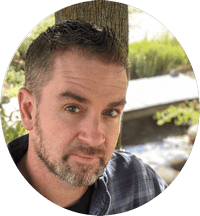WATS/CEWA 6628 - Syllabus
This course was originally advertised as in-person. Due to travel restrictions for many of our professional target audience, it was switched to fully online.
Course Information
| Course Title | Course Number | Credits | Term |
|---|---|---|---|
| Intro to Action-Effectiveness Monitoring of Riverscape Restoration Projects | WATS/CEWA 6628 | 1 Graduate Credit (1.5 CEUs) - 20 contact hours | Fall 2025 |
Catalog Description
Students learn how to monitor and assess riverscape health through a mix of desktop and field work. They conduct assessments in Riverscapes Studio, publish their findings, and present to peers.
Details
Prerequisite Recommendations
Students are recommended to be proficient in GIS (See: getting started in QGIS for self-paced; see USU's Geospatial Collective for more formal training options).
Registration
- Matriculated USU Students: Register via Banner
- Continuing Ed/Professional Students: CEWA
Schedule
| Class | Time | Days | Location | Dates | Instructor(s) |
|---|---|---|---|---|---|
| Online - Google Meet | 9:00 am - 12:00 noon; 2:00 to 4:00 pm | Mon, Tue, Wed, Thu | Google Meet | Oct 27 - 30, 2025 | Professor Joe Wheaton, Josh Gilbert, Zach Burgert, Phlip Bailey |
Instructor of Record
Office Hours - By appointment this semester.
Fees
- Matriculated Students: pay standard USU tuition. No additional fees.
- Continuing Education Students: $315 (includes $45 CEU processing fee).
Course Objectives
By the end of this course, students will be able to:
- Use Riverscapes Studio to populate Data Capture Events and produce raw monitoring observations at snapshots in time.
- Develop a field monitoring form that aligns with a protocol in QRiS and learn how to import data from field forms as well as existing datasets into QRiS.
- Apply different protocols within Data Capture Events.
- Analyze monitoring data through time and space, by building riverscape appropriate sample frames and performing analyses to calculate metrics of data produced in data capture events.
- Develop and understanding and familiarity with differences between evaluation of riverscape inventory, assesssment and monitoring for status and trend monitoring, versus baseline monitoring, versus action-effectiveness monitoring of riverscape restoration or management actions.
- Create a monitoring report, and supporting QRiS Project and post to the Data Exchange.
Course Resources
The course will use:
Main Course Resources Page
The main page for course materials and resources is on the QRiS Webiste.
QRiS & QGIS
Riverscapes Studio plugin to QGIS will be the software used in this course.
We will NOT be using Canvas for this class. All communication outside of class time will be on our Advanced LTPBR Series Community on the Riverscapes Consortium. Assignments will be submitted by sharing your Riverscapes Studio Projects and as posts in our community.
Community Resources
These communities from the Riverscapes Consortium are great places to ask questions, connect with colleagues and share your work.
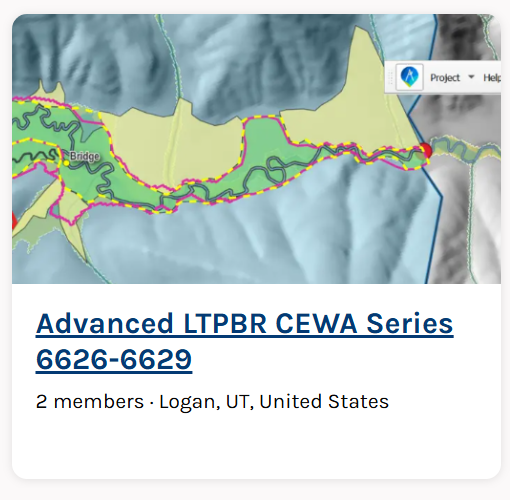
Advanced CEWA LTPBR Series Community
The community for connecting with others in this class and the advanced series of Adavanced LTPBR courses. This is in lieu of Canvas.
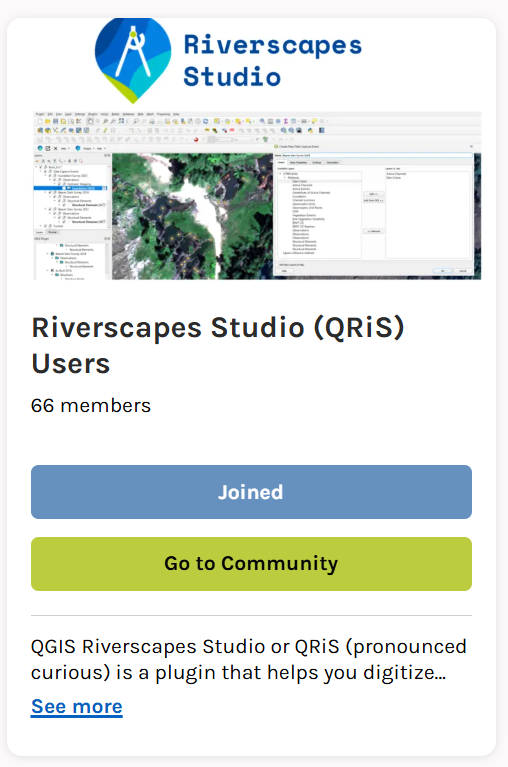
Riverscapes Studio Users
Community of QRiS Users. Stay up to date on latest releases, webinars, trainings, ask questions and share your work.
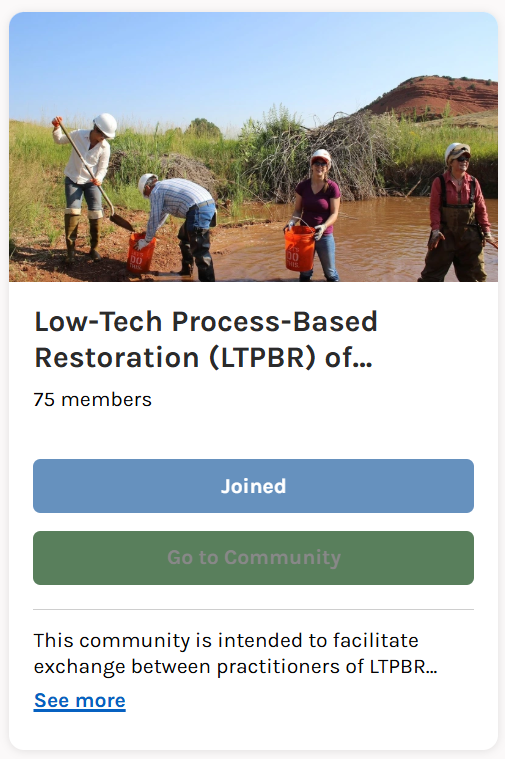
LTPBR of Riverscapes - Practitioner Community
This community is intended to facilitate exchange between practitioners of LTPBR anywhere in the world.
Textbook

LT-PBR Manual
The 2019 Low-Tech Process-Based Restoration of Riverscapes Design Manual (Free/Required). Focus on Chapter 3 of the Design Manual.
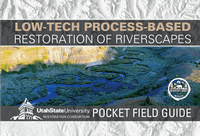
Pocket Guide
A LTPBR Pocket Guide to take with you into the field (Optional)
Course Grading
Pass / Fail Grading based on completion of project assignment and participation. Simple: do the work - pass.
University Policies
USU policies apply, including:
- Attendance
- Academic Integrity
- Student Code
- Library Services
- Disability Resource Center
- Counseling & Mental Health
- Title IX & Equity
If you experience barriers or need accommodations, please reach out to the instructor or DRC as early as possible.
